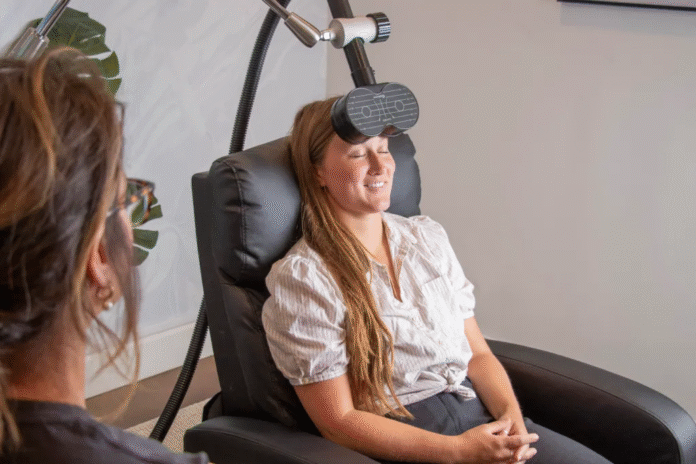In today’s fast-paced world, mental health has become one of the most important aspects of overall well-being. Stress, anxiety, and depression are no longer rare; they affect millions of people globally. With modern science and innovation, new therapies are emerging to treat mental health conditions more effectively and safely. One such innovative treatment is What is TMS — a breakthrough in non-invasive brain stimulation for people suffering from depression and other mental health disorders.
The Growing Importance of Mental Health
Over the past decade, awareness about mental wellness has grown significantly. People are finally realizing that mental health is just as important as physical health. Anxiety, stress, and depression can affect anyone, regardless of age, gender, or background. Ignoring these conditions not only reduces quality of life but also impacts physical health and productivity.
Governments, organizations, and communities are working to promote mental well-being through counseling, therapy, and awareness campaigns. However, despite progress, many still struggle with long-term or treatment-resistant depression. This is where modern approaches like TMS come into play.
What Makes Modern Mental Health Treatment Different
Traditional treatments for mental illness often include medications and psychotherapy. While effective for many, these methods don’t always work for everyone. Some patients experience side effects from antidepressants, while others don’t respond to therapy alone.
Modern treatments like Transcranial Magnetic Stimulation (TMS) offer a safe, medication-free alternative. TMS targets specific areas of the brain linked to mood regulation, providing relief where traditional treatments fail. It represents the intersection of technology and medicine to help restore mental balance naturally.
Understanding TMS Therapy
Transcranial Magnetic Stimulation is a non-invasive therapy that uses magnetic fields to stimulate nerve cells in the brain. It helps activate areas responsible for mood control, especially in people with depression who haven’t improved with medication.
A typical TMS session lasts around 20 to 40 minutes, and patients remain awake and alert throughout the process. Unlike medications, TMS does not involve chemicals and has no significant side effects. It’s an outpatient procedure, meaning individuals can return to their daily activities immediately after the session.
Benefits of TMS for Mental Health
The popularity of TMS is growing because of its effectiveness and safety. Here are some key benefits:
- Drug-free treatment: Ideal for those who cannot tolerate antidepressants.
- Non-invasive procedure: No surgery or anesthesia is required.
- Minimal side effects: Most patients experience only mild scalp discomfort.
- Long-lasting relief: Many report sustained improvement after a full treatment cycle.
- Enhanced brain function: Helps restore natural brain activity associated with mood and focus.
Why TMS Is Changing Mental Health Care
Mental health treatment has evolved from simple talk therapy to advanced brain stimulation techniques. TMS represents a new era in psychiatry where science meets empathy. It offers hope to those who felt their condition was untreatable.
Clinics like Concierge TMS in Massachusetts specialize in providing personalized, comfortable, and effective TMS therapy. Their mission is to make advanced mental health care accessible to all, ensuring patients receive professional guidance and support throughout their healing journey.
The Connection Between Mental and Physical Health
Mental well-being deeply influences physical health. Chronic stress can lead to headaches, fatigue, digestive issues, and even heart disease. On the other hand, positive mental health boosts energy levels, sleep quality, and immune function.
This mind-body connection shows why treatments like TMS are so valuable — they don’t just address symptoms; they improve overall neurological balance, which benefits both mental and physical health.
Incorporating Mental Wellness into Daily Life
Beyond clinical treatments, maintaining mental wellness requires daily effort. Practices such as mindfulness, meditation, physical activity, and spending time in nature all contribute to emotional balance. Setting healthy boundaries and maintaining social connections can also reduce stress and anxiety.
Mental health is not only about treating illness but also about nurturing peace, clarity, and purpose.
Conclusion
Mental wellness is essential for a happy and productive life. As more people recognize the importance of caring for their minds, modern therapies like Transcranial Magnetic Stimulation (TMS) are transforming the way we treat depression and anxiety. By exploring innovative solutions such as What is TMS, individuals can discover safe, effective, and life-changing ways to improve their mental health.

